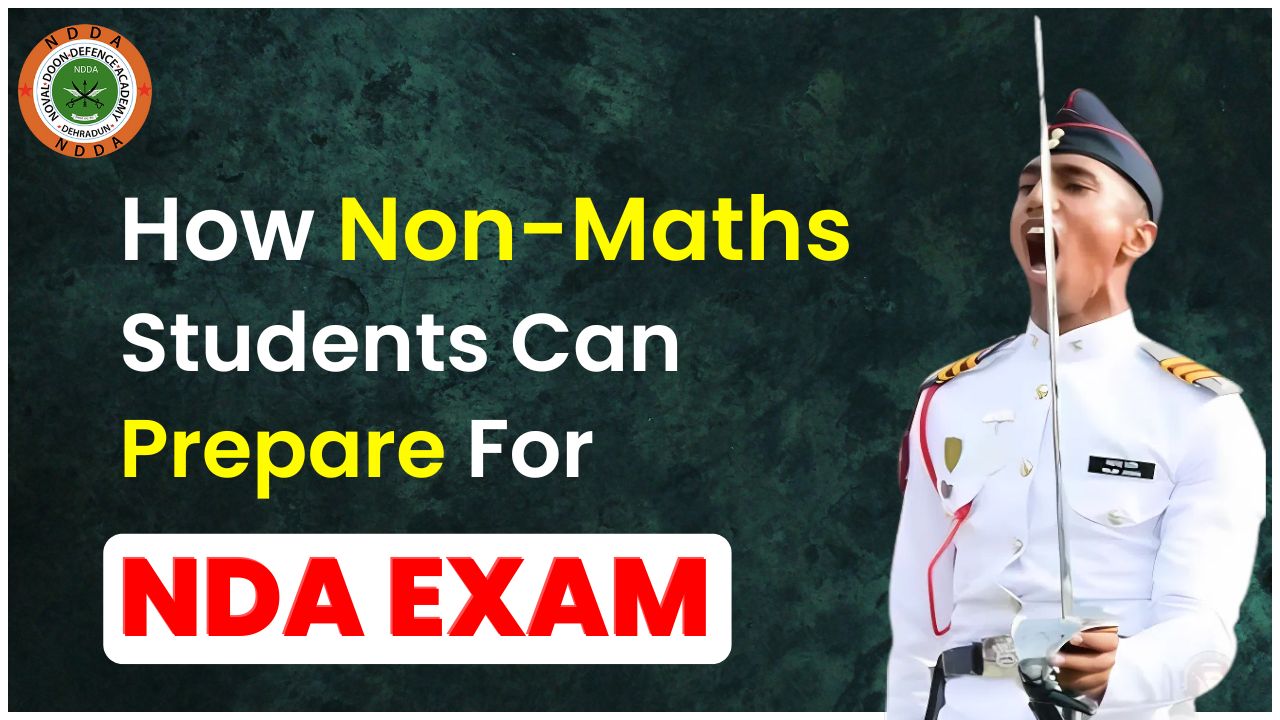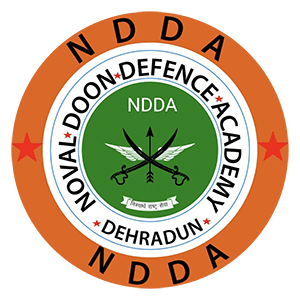How non maths student can prepare for NDA exam?

Table of Contents
The idea that non-maths students are at a disadvantage can be quite discouraging, but rest assured, with the right plan and approach, any candidate can excel. If you’re someone who didn’t choose mathematics in school, don’t worry—you’re not alone, and you definitely aren’t out of the running for the NDA. With some smart strategies and persistence, you can conquer this exam.
Understanding the NDA Exam Pattern
Before diving into strategies, it’s crucial to get a clear view of the exam’s structure. The NDA exam is split into two main parts: Mathematics and the General Ability Test (GAT). While non-maths students may find the first section intimidating, the GAT covers a wide range of topics like English, General Knowledge (GK), and Science. This means you have significant opportunities to score well outside of mathematics. Understanding the weighting of each section helps you prioritize where to focus your efforts, so you’re not just running blind.
How to Face Mathematics Section for Non-Maths Students
Let’s address the elephant in the room—mathematics. For non-maths students, tackling this part requires a unique approach:
- Start with the basics: You don’t need to be a math whiz, but solidifying your understanding of basic concepts like algebra, trigonometry, and arithmetic can make a world of difference.
- Use targeted resources: Opt for guidebooks that simplify complex topics. Even YouTube tutorials and online courses can offer step-by-step breakdowns.
- Practice smartly: Instead of spending hours on problems that are beyond your comfort zone, focus on those that are commonly asked and manageable.
- Shortcuts and formulas: Memorize key formulas and learn simple shortcuts. This will not only help you save time but also boost your confidence.
Tip: Even if you can’t solve every math question, attempt the ones you are sure about to maximize your score without negative marking.
Focus on the General Ability Test (GAT)
The GAT is where non-maths students can truly shine. This section assesses your grasp on subjects like English, History, Geography, and Current Affairs. Here’s how to ace it:
- Boost your vocabulary: Reading newspapers, novels, and online articles can help improve your language skills naturally.
- Stay updated: Keep track of major events by following reliable news sources and magazines.
- Use mock tests: Regularly practicing mock papers gives you a feel of the real exam and helps identify weak spots.
- Revise smart: Make use of flashcards or apps that help you revise key facts and terms quickly.
Side note: Don’t underestimate the power of good general knowledge. A little extra effort in this section can cover for a few misses in mathematics.
Develop a Strong Foundation in English
A strong command of English isn’t just beneficial for the GAT; it also boosts your overall communication skills:
- Read regularly: Books, editorials, and online blogs are your best friends.
- Practice writing: Penning down your thoughts or summarizing articles helps strengthen your grammar and writing speed.
- Engage in conversations: Chat with friends in English or even talk to yourself in front of a mirror. It sounds silly, but it works wonders.
Strengthen General Knowledge (GK)
Shifting gears to GK, a broad knowledge base can be a game-changer:
- Explore varied topics: From the Indian freedom struggle to the latest tech trends, having an understanding of a wide array of subjects makes this section less daunting.
- Follow documentaries: They’re an entertaining yet educational way to learn.
- Quizzes and games: Join online quizzes or apps designed for current affairs. It keeps things fun and competitive.
Prepare for the Science Section
Preparing for science doesn’t mean diving deep into complex theories:
- Keep it basic: Focus on the fundamental concepts from your school days, especially physics and chemistry.
- Visual learning: Diagrams and flowcharts can simplify tough concepts.
- Interactive learning: Videos and experiments make studying more engaging.
Time Management and Study Plan
Managing your time effectively is non-negotiable:
- Plan your week: Allocate specific hours for each section, with more time given to areas that need improvement.
- Set small, daily goals: Consistency beats long, unsustainable study sessions.
- Take breaks: Avoid burnout by taking short breaks to recharge.
- Evaluate progress: Regular self-assessment helps tweak your plan as needed.
Common Mistakes to Avoid
Many candidates unknowingly slip up in a few areas:
- Skipping revisions: The night before the exam, don’t overload your brain with new information. Instead, revise what you know.
- Relying on rote learning: Understanding is key. Cramming might work for some, but it usually backfires.
- Ignoring health: A sound mind in a sound body—ensure you’re getting enough rest and eating well.
Join NDDA Academy for NDA Exam Preparation
If self-study feels overwhelming or you want that extra edge, joining a coaching institute like Noval Doon Defence Academy can be a smart move. Here we offer specialized programs designed for non-maths students, expert faculty support, and an environment that motivates you to keep going.
Conclusion
To wrap it up, non-maths students shouldn’t feel outmatched when preparing for the NDA exam. By focusing on strong strategies for the GAT, building a robust foundation in English, managing time wisely, and leveraging professional guidance, you’re setting yourself up for success. Remember, it’s all about consistency and smart work. So, what’s stopping you from starting today?
You may also like :-
Reach Us
